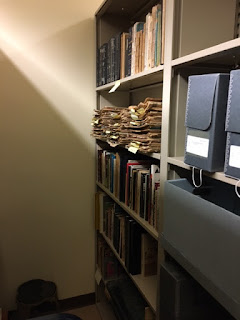Reading Response #4
1. Part of our happiness depends on people
you have never met because as human beings we are connected to one another,
especially with social media. The technology enhances the ability to
communicate with other people quicker, more efficient, and can be more responsive.
According to the book, there was a study called social contagion, which affirms
this idea. Our friends have their own friends, which they then have their own
friends. These friends have certain influences of their behaviors over our
friends. In this case, our friends are affected to a certain extent by their
friends’ actions. Their choices can affect our decisions on how we see life and
induce our habits, either good or bad. Even your parents are examples of this
idea. Your grandparents, great grandparents, and great, great grandparents
influenced your parents and you as well. We may have never met all of them, but
how these family members raised their children are influenced by their
upbringings that are past down to us. I think this experiment works even in
absence because my father never met his father; but that absence formed the way
my father questioned certain things for a period of time. However, our
dependency of other people affects us to a certain extent because it is up to
us on how far a person is going to influence us and we have the decision to
change. We have a free will, but if we are not careful, then we allow other
people to define our happiness and rule over our thoughts.
2. New connections afforded by digital
networks add more value because we build new skills such as networked
individualism. Networked individualism allows us to gain new knowledge that in
the past these certain information would be impossible to find. With everything
we do need to be careful to not abuse or misuse the skills that are given to
us. In this case, technology can consume our time and life if we do not set boundaries
and priorities. However, when we use technology for “good” we collaborate with
other people that we do not know and access to new knowledge right at the palm
of our hands. For example, in my class called Tools for Digital Humanities I
was in a group to work on building a webpage on a topic related to the
humanities. We used Webcourse’s group page and we put our ideas and work on the
same working space to collaborate. We were from different disciplines so we
brought in our thought process into the project.



Comments
Post a Comment